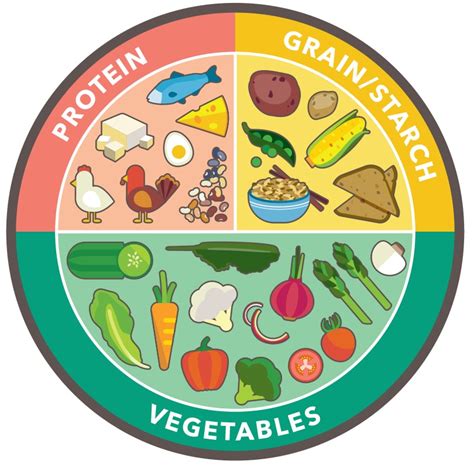The Vital Role of Testosterone in Men’s Health
Testosterone, often dubbed the primary male sex hormone, plays a critical role in far more than just libido and muscle mass. It influences energy levels, mood, bone density, red blood cell production, and even cognitive function. As men age, testosterone levels naturally decline, but various modern lifestyle factors can accelerate this process, leading to symptoms like fatigue, weight gain, reduced strength, and low mood. Fortunately, a proactive approach incorporating specific dietary, exercise, and lifestyle changes can significantly help optimize and support healthy testosterone levels naturally.

Dietary Strategies for Robust Testosterone Production
What you eat forms the foundation of your hormonal health. To support testosterone production, focus on nutrient-dense, whole foods.
Prioritize Healthy Fats
Contrary to outdated advice, healthy fats are essential for hormone synthesis. Incorporate sources like avocados, olive oil, nuts, seeds, and fatty fish (salmon, mackerel) into your diet. These provide cholesterol, a precursor to testosterone, and essential fatty acids that support overall endocrine function.
Adequate Protein Intake
Protein is crucial for muscle repair and growth, which indirectly supports testosterone. Aim for lean protein sources such as chicken, turkey, beef, eggs, and legumes. Adequate protein helps maintain lean muscle mass, which is metabolically active and can positively influence hormone balance.
Micronutrient Powerhouses: Zinc, Vitamin D, and Magnesium
- Zinc: This mineral is vital for testosterone production. Oysters are an excellent source, as are red meat, poultry, beans, nuts, and dairy.
- Vitamin D: Often referred to as a “sunshine vitamin,” Vitamin D actually functions as a steroid hormone in the body. Research consistently links higher Vitamin D levels with higher testosterone. Get regular sun exposure or supplement if necessary, and include fortified foods or fatty fish.
- Magnesium: Involved in over 300 enzymatic reactions, magnesium is another crucial mineral. Studies suggest it can increase both total and free testosterone. Good sources include leafy greens, nuts, seeds, legumes, and whole grains.
Limit Processed Foods, Sugar, and Excessive Alcohol
These culprits can negatively impact hormone balance, contribute to inflammation, and lead to weight gain, all of which can suppress testosterone. Minimize sugary drinks, refined carbohydrates, and processed snacks, and consume alcohol in moderation.

Exercise Regimens to Boost Testosterone
Physical activity, especially certain types, is a powerful natural testosterone booster.
Embrace Strength Training
Lifting weights, particularly compound movements like squats, deadlifts, bench presses, and rows, has been shown to significantly increase testosterone levels. Focus on heavy, challenging weights with proper form, and aim for 3-4 sessions per week.
Incorporate High-Intensity Interval Training (HIIT)
Short bursts of intense exercise followed by brief recovery periods can also stimulate testosterone production. HIIT workouts are efficient and effective, but should be balanced with other forms of training to avoid overtraining.
Avoid Chronic Overtraining
While exercise is beneficial, excessive or prolonged intense training without adequate recovery can actually lead to a drop in testosterone and an increase in cortisol (a stress hormone). Listen to your body and prioritize rest days.

Lifestyle Adjustments for Optimal Testosterone
Beyond diet and exercise, several lifestyle factors profoundly impact hormonal health.
Prioritize Quality Sleep
Testosterone is primarily produced during sleep. Chronic sleep deprivation (less than 7-9 hours per night) can drastically reduce testosterone levels. Establish a consistent sleep schedule, create a dark and cool sleep environment, and avoid screens before bed.
Manage Stress Effectively
Chronic stress leads to elevated cortisol levels, which can directly suppress testosterone production. Incorporate stress-reduction techniques into your daily routine, such as meditation, yoga, deep breathing exercises, spending time in nature, or engaging in hobbies you enjoy.
Maintain a Healthy Body Weight
Excess body fat, particularly around the abdomen, can lead to increased estrogen conversion from testosterone through an enzyme called aromatase. Losing excess weight can help rebalance hormones and boost testosterone.
Avoid Endocrine Disruptors
Be mindful of exposure to chemicals found in plastics (BPA), pesticides, and certain personal care products, which can mimic hormones and disrupt the endocrine system. Choose natural alternatives where possible and store food in glass containers.

Conclusion: A Holistic Path to Hormonal Health
Optimizing testosterone levels isn’t about a single fix but rather a holistic commitment to a healthy lifestyle. By making informed choices about your diet, engaging in consistent and appropriate exercise, prioritizing quality sleep, effectively managing stress, and minimizing exposure to endocrine disruptors, men can naturally support and enhance their testosterone production. This integrated approach not only promotes hormonal balance but also contributes to overall vitality, well-being, and a higher quality of life. Consult with a healthcare professional to tailor these recommendations to your individual needs.





